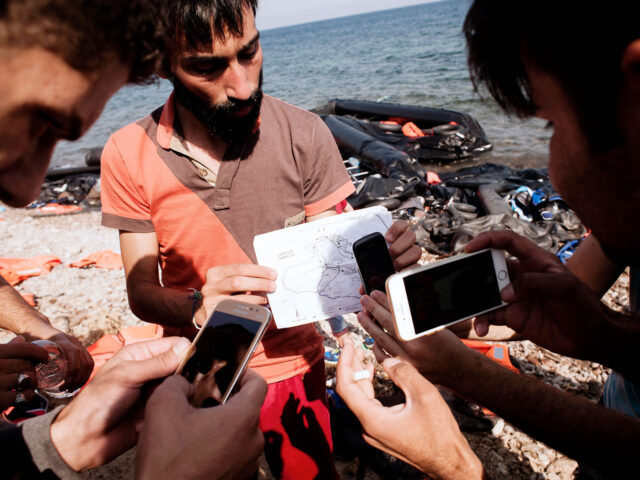In a move of desperation, the UK is planning to pay influencers on TikTok to try to persuade migrants from entering the country illegally in small boats run by people-smuggling gangs in France.
UPDATE 2100: Several of the potential TikTok influencers identified as candidates to spread the message for the Home Office have reacted publicly shot down the idea of working for the UK government, including 20-year-old Albanian TikToker Fabio Daja, who told the i Newspaper of the reported plans to draft him: “What the actual f**k. I haven’t been contacted by any government… Would I accept their offer if they contacted me? No. I find it a very sensitive issue when it comes to refugees trying to cross the border.”
The original story continues as follows…
In the latest scheme to try to reduce illegal migration, the Home Office has laid out plans to pay local influencers in countries such as Albania, Egypt, Iraq, India, Turkey and Vietnam to make TikTok videos to lay out the “reality of life in the UK for illegal migrants” to counteract messages on the platform from trafficking gangs used to advertise Britain as a destination for prospective illegals.
The local influencers will be paid thousands of pounds sterling to spread messages surrounding the UK’s new immigration law, including the long-delayed scheme to send illegal boat migrants to asylum centres in Rwanda rather than putting them up in hotels in Britain, as has been the case for the past few years.
According to a report from The Times of London, the campaign is intended to get around the British government’s prohibition on using TikTok over concerns of its ties to the Chinese Communist Party. Although the propaganda videos produced will not be branded with the fact that they are produced at the behest of the British government, the influencers will need to acknowledge that they are being paid by the Home Office for the sake of transparency.
The plans from the Home Office state that the people they are trying to reach “are either undecided about departing their country or are decided but considering their destination.”
“This campaign is not aimed at those migrants who minds are already set on making the illegal journey to the UK: we know that the influence we can have over them is limited. For this campaign’s audience, largely comprising young working-age males and their family, influencers’ communications have a role in encouraging them to consider the risk of exploitation, apprehension, detention and ultimately return, as reasons illegal migration to the UK is not the right choice.”
The government has contracted the Multicultural Marketing Consultancy (MMC) to find foreign influencers. The agency claims to have a history of “engaging diverse audiences”, and that those it plans to engage for the Home Office are “popular culture opinion-formers who are well-placed to disseminate key messages on TikTok about the reasons to remain in country, risks to crossings [and] the legislation that applies if you arrive in the UK”.
According to the Times, the Home Office has budgeted £30,000 to pay influencers in Albania, historically a top origin for illegal migration to the UK. The report claims that they have already identified local rappers, comedians, lifestyle bloggers, television personalities, and travel writers as potential candidates, who could be paid up to £5,000 to persuade their fellow countrymen from attempting to break into the UK.
The TikTok scheme comes amid a broader advertising effort in Albania across social media, television, and radio which is set to cost the taxpayer £380,500. Meanwhile, a total of £576,500 has been budgeted to launch TikTok campaigns in Egypt, India, Iraq, Turkey, and Vietnam.
A Home Office spokesman said: “People smugglers frequently use social media to peddle lies and promote their criminal activities and it is vital that we utilise the same platforms to inform migrants about the truths about crossing the Channel and coming to the UK illegally”.
The social media campaign comes amid continued failures by the Conservative government to stop illegals from crossing the English Channel from France. While crossings were down last year from their peak of 45,774 in 2022, an estimated 29,437 were recorded entering the country illegally, which is still higher than any other year since the crisis began.
The government has claimed that the fall was a result of their policies, however, the BBC reported that much of the decline could be attributed to more days with harsh weather preventing small boats from crossing.

COMMENTS
Please let us know if you're having issues with commenting.